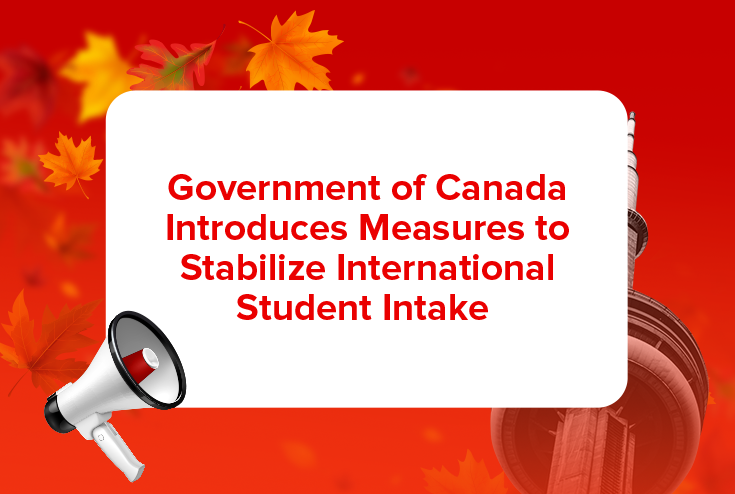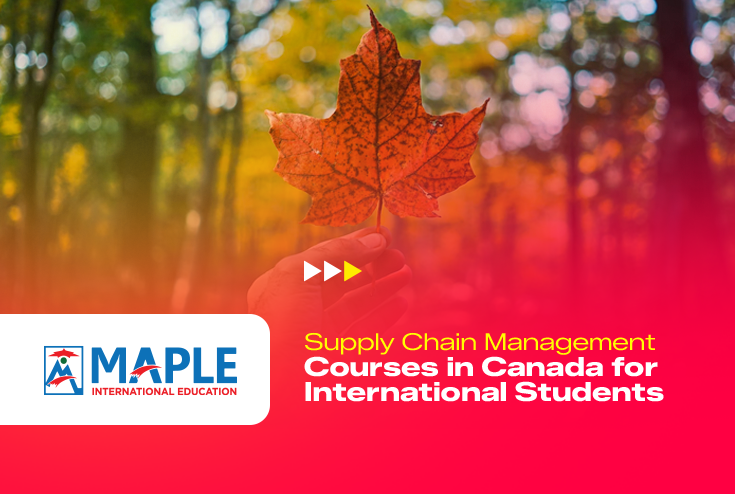
Government of Canada Introduces Measures to Stabilize International Student Intake
Government of Canada Introduces Measures to Stabilize International Student Intake
In recent years, the influx of international students has significantly impacted Canada's educational landscape and broader societal infrastructure. While these students enrich communities and contribute to the nation's cultural and economic vitality, challenges have emerged concerning the integrity and sustainability of the international student system. To address these concerns, the Government of Canada has announced comprehensive measures aimed at stabilizing international student intake and enhancing the support mechanisms for genuine students.
Table of Contents:
- Introduction
- Background
- Implementation of Intake Cap
- Provincial Attestation Requirement
- Exemptions and Renewals
- Collaborative Allocation
- Adjustments to Post-Graduation Work Permit Program
- Curriculum Licensing Arrangements
- Master's Degree Graduates
- Spousal Work Permit Eligibility
- Conclusion
International students play a pivotal role in Canada's social, cultural, and economic fabric. However, unsustainable growth in student numbers, driven partly by institutions' revenue motives, has strained essential services like housing and healthcare. Recognizing these challenges, the government acknowledges the need to safeguard the integrity of the international student system while ensuring adequate support for students to thrive in Canada.
The Honorable Marc Miller, Minister of Immigration, Refugees and Citizenship, unveiled a pivotal decision to impose a two-year intake cap on international student permit applications. For the year 2024, the cap is set at approximately 360,000 approved study permits, reflecting a significant 35% reduction from 2023 levels. Provincial and territorial caps, weighted by population, have been established to address unsustainable growth in specific regions.
Key Measures:
Provincial Attestation Requirement: Effective January 22, 2024, every study permit application submitted to IRCC necessitates an attestation letter from the respective province or territory. Provinces and territories are tasked with establishing processes for issuing these letters by March 31, 2024.
Exemptions and Renewals: Master's and doctoral degree seekers, as well as elementary and secondary education students, are exempt from the intake cap. Current study permit holders and renewal processes remain unaffected.
Collaborative Allocation: IRCC will allocate a portion of the cap to each province and territory, empowering them to distribute allocations among designated learning institutions.
Post-Graduation Work Permit Program Adjustments:
To ensure alignment with the evolving educational landscape, changes to the Post-Graduation Work Permit Program criteria have been introduced:
Curriculum Licensing Arrangements: Starting September 1, 2024, international students enrolled in curriculum licensing arrangements will no longer be eligible for post-graduation work permits. This move aims to address loopholes and ensure program integrity.
Master's Degree Graduates: Graduates of master's degree programs will soon be eligible for a three-year work permit, providing enhanced opportunities for gaining work experience and potentially transitioning to permanent residence.
Spousal Work Permit Eligibility:
In a bid to streamline eligibility criteria, open work permits will be exclusively available to spouses of international students enrolled in master's and doctoral programs, effective immediately. Spouses of students in other academic levels will no longer qualify for these permits.
The government's proactive measures signify a commitment to fostering a sustainable and supportive environment for international students in Canada. By balancing intake, enhancing program integrity, and aligning work permit policies with evolving educational trends, Canada aims to provide genuine students with enriching experiences while mitigating pressures on essential services. These reforms underscore a collaborative effort to shape a vibrant and inclusive educational landscape for generations to come.




